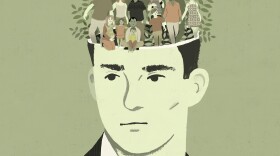
Tara Boyle
Tara Boyle is the supervising producer of NPR's Hidden Brain. In this role, Boyle oversees the production of both the Hidden Brain radio show and podcast, providing editorial guidance and support to host Shankar Vedantam and the shows' producers. Boyle also coordinates Shankar's Hidden Brain segments on Morning Edition and other NPR shows, and oversees collaborations with partners both internal and external to NPR. Previously, Boyle spent a decade at WAMU, the NPR station in Washington, D.C. She has reported for The Boston Globe, and began her career in public radio at WBUR in Boston.
-
Violent crimes committed by Muslims are much more likely to be reported as "terrorism." And that has disturbing consequences for the way Muslims are perceived.
-
When we think of lies, we think of the big stuff. We say, "I could never do something like that." But big lies start with small deceptions. Dan Ariely talks about why we lie and why we're honest.
-
NewsHave you ever noticed that when something important is missing in your life, your brain can only seem to focus on that missing thing? Two researchers have dubbed this phenomenon "scarcity."
-
NewsImagine seeing a cockroach skitter across your kitchen counter. Does the thought alone gross you out? This week on Hidden Brain, we discuss disgust.
-
NewsBoys get the message quickly: a man is supposed to be strong and independent. That message, researchers say, has widespread consequences for men's social lives and physical health.
-
NewsEconomic theory rests on a simple notion about humans: people are rational. But a half century ago, two psychologists shattered these assumptions.
-
NewsA culture of racism can infect us all. On this week's radio show, we discuss the implicit biases we carry that have been forged by the society around us.
-
NewsOur culture has long expected that women will be kind, and leaders will be authoritative. So what's a female leader to do when she confronts these conflicting stereotypes?
-
NewsEnvy is an unflattering, miserable emotion. It can prompt us to improve our lives — and also cause us to feel resentment, rage, and a desire for revenge.
-
NewsMarriage is hard — and there are signs it's become even harder in recent decades. We examine how long-term relationships have changed, and whether we might improve marriage by asking less of it.









